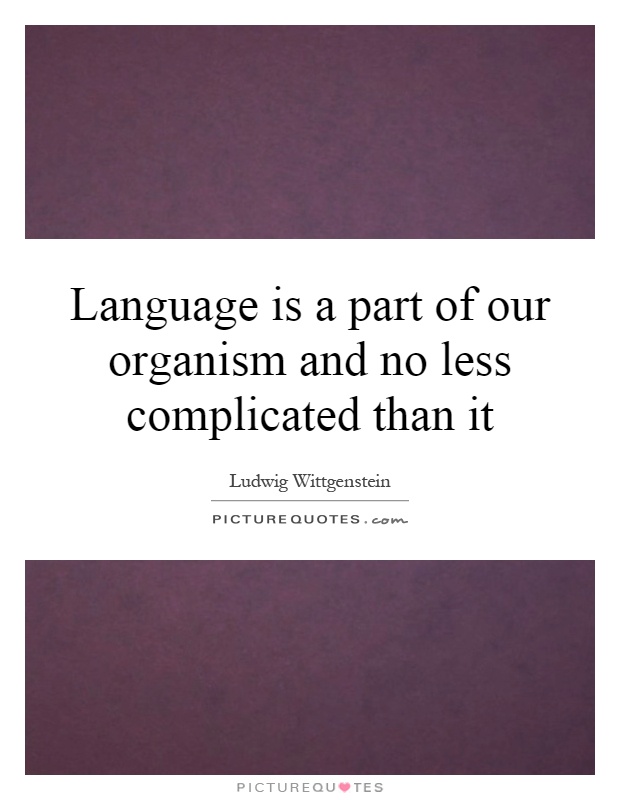Language is a part of our organism and no less complicated than it

Language is a part of our organism and no less complicated than it
Ludwig Wittgenstein, a renowned Austrian-British philosopher, made significant contributions to the philosophy of language and the nature of human communication. One of his most famous quotes, "Language is a part of our organism and no less complicated than it," highlights his belief that language is not just a tool for communication but an integral part of our being.Wittgenstein believed that language is not just a set of arbitrary symbols but a complex system that is deeply intertwined with our thoughts, emotions, and experiences. He argued that language shapes the way we perceive the world and influences our understanding of reality. In his seminal work, the Tractatus Logico-Philosophicus, Wittgenstein explored the limits of language and the relationship between language and reality.
According to Wittgenstein, language is not just a means of communication but a reflection of our inner thoughts and beliefs. He believed that language is a dynamic and ever-evolving system that is constantly being shaped by our interactions with others. Wittgenstein also emphasized the importance of context in understanding language, arguing that words can have different meanings depending on the context in which they are used.
Wittgenstein's ideas about language have had a profound impact on the field of linguistics and philosophy. His concept of language as a part of our organism challenges traditional views of language as a static and objective system. Instead, Wittgenstein saw language as a living and dynamic entity that is intimately connected to our thoughts, emotions, and experiences.












 Friendship Quotes
Friendship Quotes Love Quotes
Love Quotes Life Quotes
Life Quotes Funny Quotes
Funny Quotes Motivational Quotes
Motivational Quotes Inspirational Quotes
Inspirational Quotes